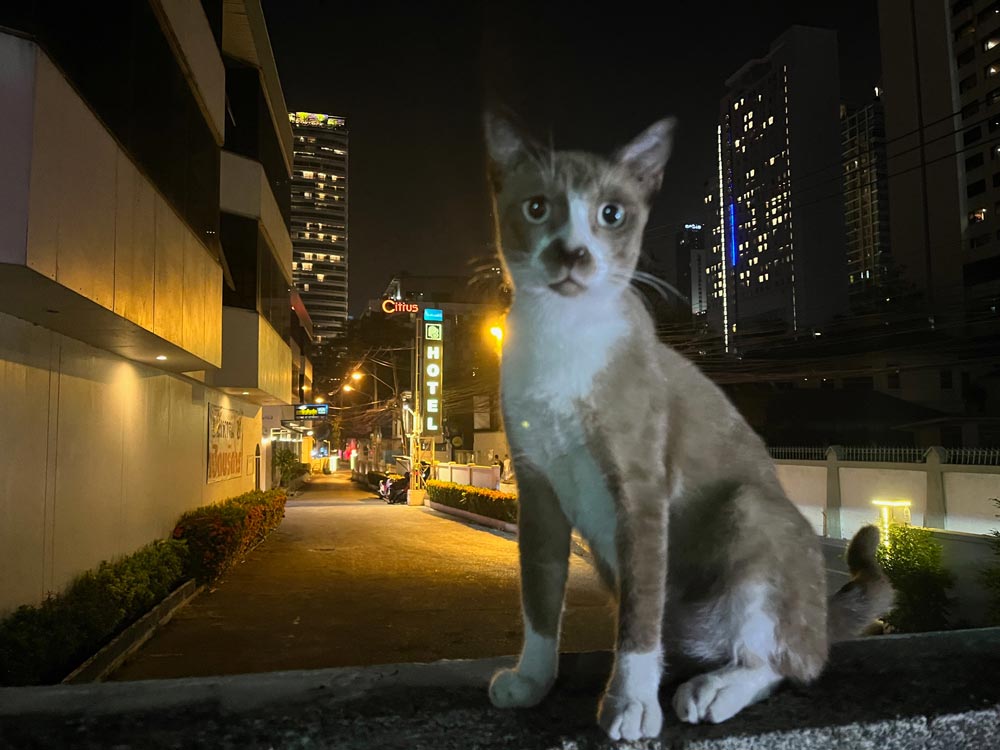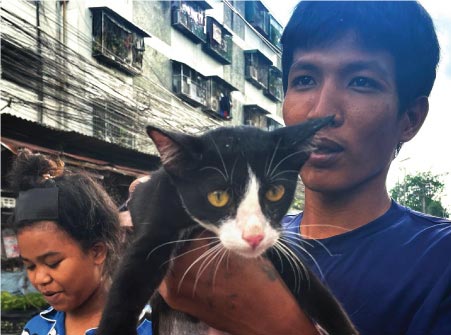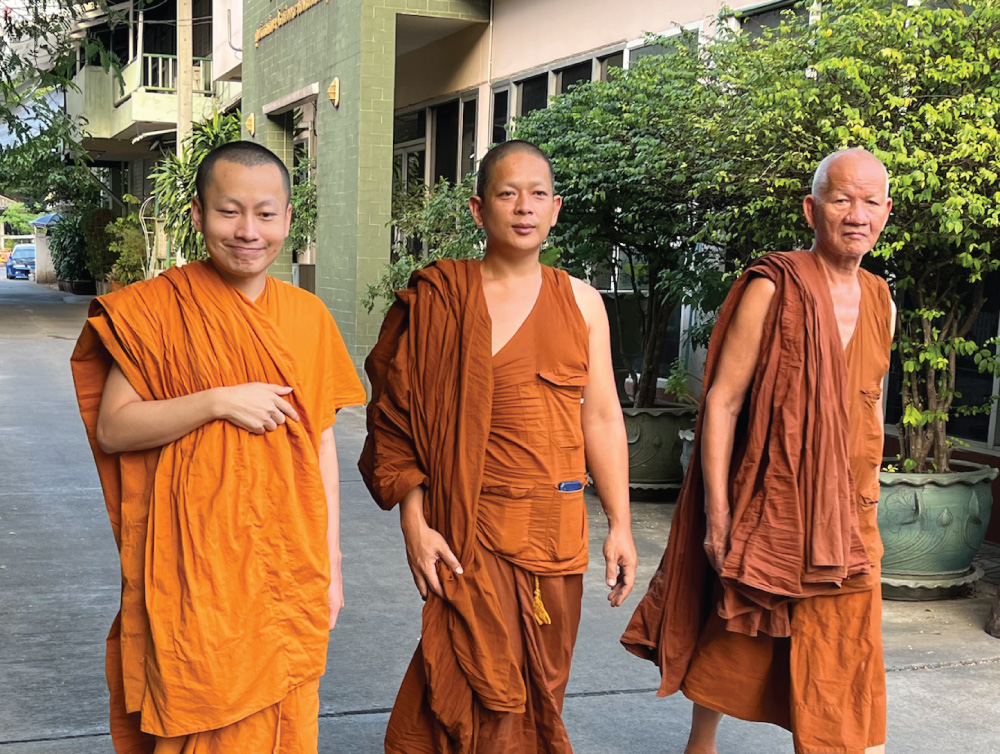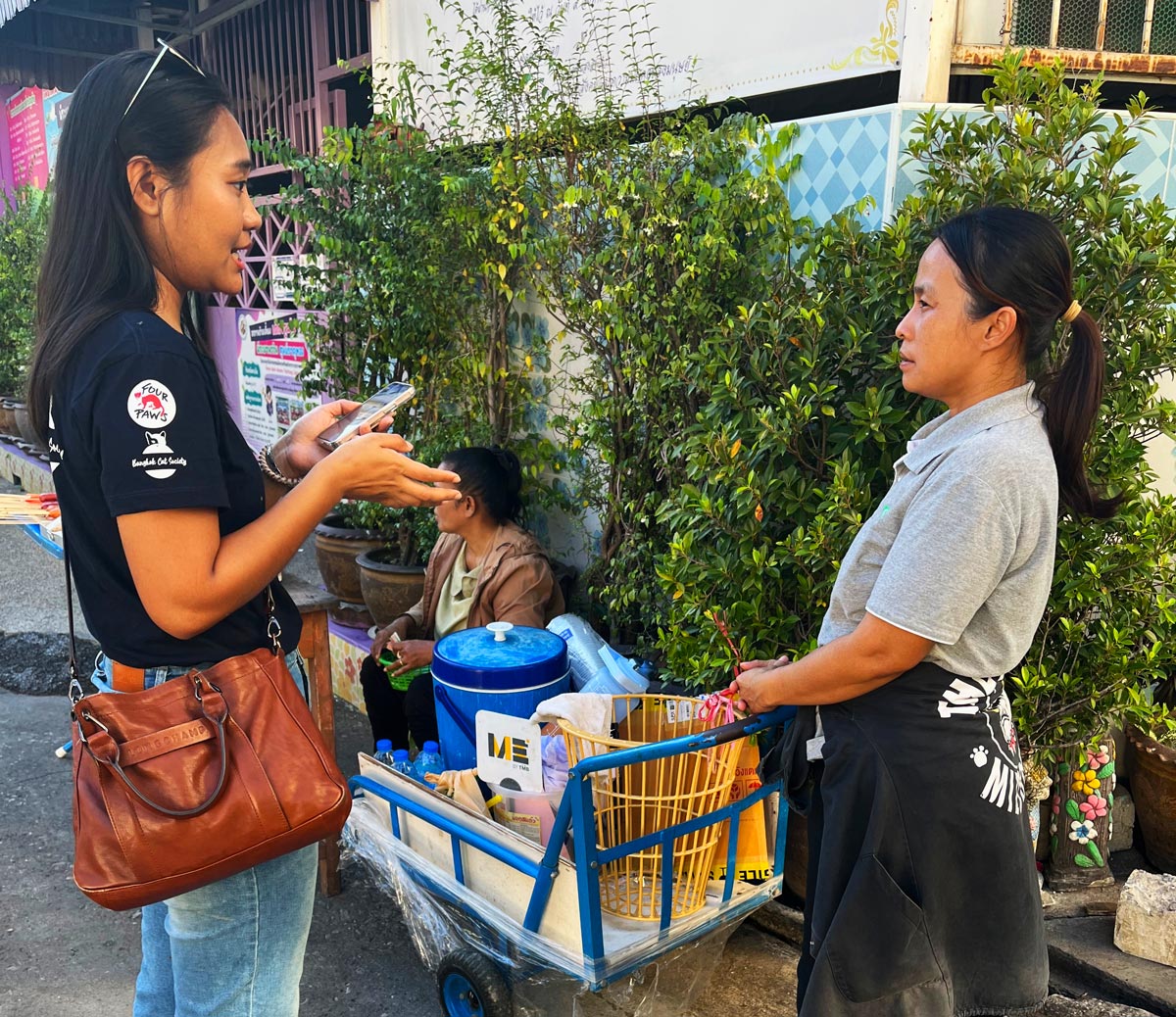
Our Approach
Everything we do is grounded in best practices for community cat welfare.
Our approach draws from successful global strategies and data-driven research adapted to fit the social and cultural context of Thai communities.
We combine social entrepreneurship and cultural integrations to ensure our approaches are sustainable, proven and innovative.

Community Cats 365
Our proprietary Community Cats 365 model provides an evidence-based approach that goes beyond solely feeding or sterilizing cats, to also include actively managing community cat populations that combines:
- Cat population management
- Daily feeding
- Urgent/preventive medical care
- Special needs cats rescue
- Community education and awareness programs
- Collaborating with local stakeholders

Targeting Low-Income Communities
In Thailand, veterinary care is a luxury, especially in low-income areas. Many families and individuals can barely cover basic living costs, let alone afford sterilization or medical care for cats that live in their communities.
Cats in these areas often suffer from malnutrition, disease, and untreated injuries. Left unchecked, the cat population can explode, leading to overcrowding, fighting, and higher risks of disease transmission.
Our program focuses on providing underserved communities with access to essential veterinary services, including free and low cost sterilizations and vaccinations. We also provide education on caring for community cats and how humane population control, which benefits both residents and cats.
By focusing on these neighborhoods, BCS is not only improving the lives of cats but also helping to alleviate some of the burdens placed on low-income residents who already struggle with limited resources.

Adapting to Local Cultures
Bangkok is home to a complex network of community cats that live in markets, temples, and residential neighborhoods. These cats aren’t considered “strays” in the traditional sense, as many people feed and care for them informally.
However, without proper management, these colonies can grow out of control, leading to problems for both the cats and their human neighbors.
Our solutions are community-driven, engaging local stakeholders like street sellers, security guards, local businesses, and residents to become active participants in caring for the cats.
Buddhist temples hold significant cultural and spiritual importance in Thailand. By partnering with these institutions, we can tap into a deep well of compassion for animals that is already part of the cultural fabric, and foster an environment where humane cat management becomes the norm.

Collaborate with Everyday Stakeholders
Bangkok’s community cats often depend on informal caretakers, including street vendors, security guards, and ordinary citizens.
These individuals often provide food to cats but often lack the resources or knowledge to address more significant issues like overpopulation or disease.
By working hand-in-hand with local residents, we aim to create long-lasting, humane strategies that address the root causes of cat overpopulation and welfare issues
